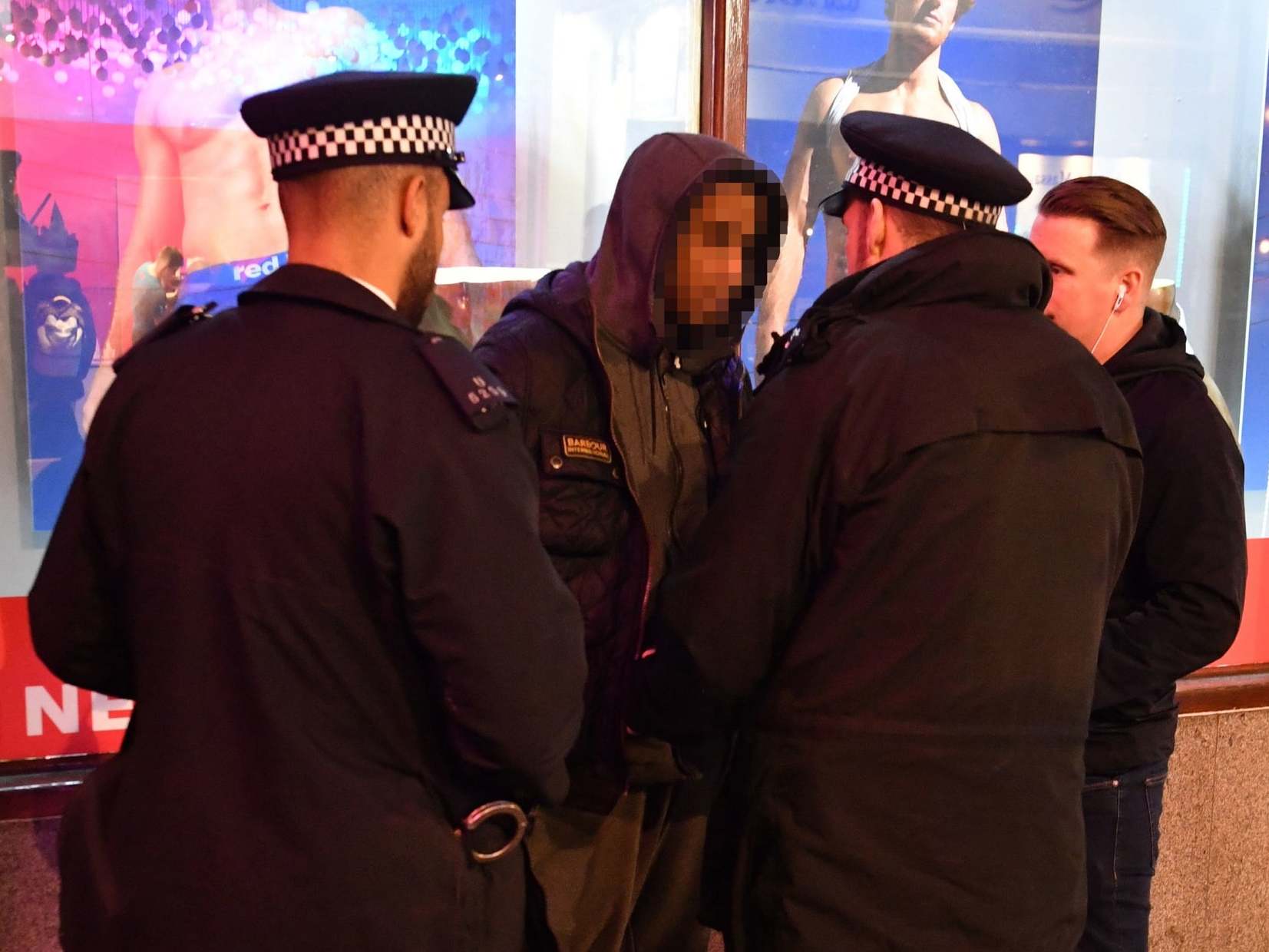Stop and search is on the rise and more dangerous than any drug
The lack of options for some young black men is compounded by the risk of a criminal conviction or a custodial sentence being higher than white people when engaging in this type of illicit activity, writes Ian Hamilton


While we’re all aghast at the murder of George Floyd in America we should look closer to home and reflect on domestic injustice.
We are not all equal under UK law – and a timely reminder comes from recent Home Office data on stop and search with a focus on ethnicity.
Stop and search has proved to be controversial and polarising. Even before data became available, young black men were all too aware of the unfair way this activity was carried out by the police.
In order for stop and search to be carried out legitimately it must be based on “reasonable suspicion” of an illicit activity. This subjective and poorly-defined term lends itself to misuse, most commonly by way of police using these powers as a “fishing” exercise, believing they can find small amounts of drugs or an illegal weapon. This approach has often proved to be useless, as many of these searches yielded nothing and instead created animosity and mistrust.
Despite people from ethnic groups being no more likely to use drugs than their white British counterparts, the Home Office data found there were four stop and searches for every 1,000 white people compared to 38 for every 1,000 black people.
In my view, this difference can’t be explained away by some other less obvious factor than simple and unjust institutional prejudice.
One of the ways ethnicity and drugs are related is in the supply and dealing of drugs. The sad reality for some young black men is that their only hope of a career and earning money is via illicit activity: even in 2020, their choices are not as varied as their white counterparts. This lack of options is compounded by the fact that, if you’re a young black man, the risk of a criminal conviction or a custodial sentence is amplified when engaging in this type of illicit activity. Neither of which gives people much hope that things can change or their prospects can improve.
We are told by politicians that the aim of the policy on drugs is to protect the population. Unfortunately, its implementation creates as much disadvantage as any risk from using drugs. If you’re white and British there may not be much consequence. For everyone else, the harm that drugs can cause is amplified by allowing drug-related policing to marginalise these individuals further and rob them of any hope or ambition.
Anyone of colour reading this will be too familiar with the way the law is applied and the consequences this has.
Just because we don’t have protests and riots in the UK doesn’t mean we don’t have similar racial prejudice as in the US. Our prejudice has become an intergenerational inheritance in some families, where father advises son on how to behave and think, if or when he comes into contact with the police. Drug policy is just one example of how lip service is paid to protecting everyone in the population when it actually creates a two-tier experience that creates a disadvantage that is far more dangerous than any drug known to man.
Ian Hamilton is an associate professor of addiction at the University of York
Join our commenting forum
Join thought-provoking conversations, follow other Independent readers and see their replies
Comments